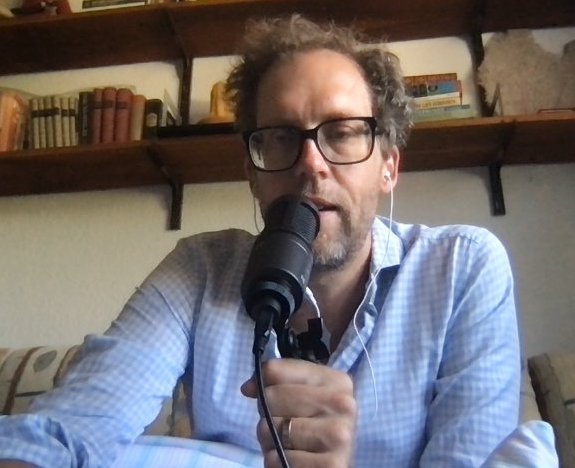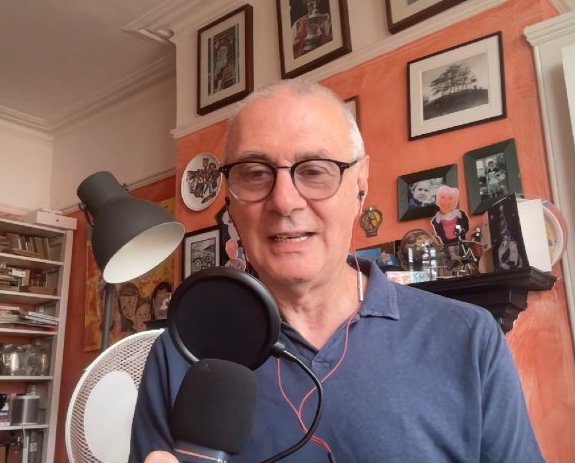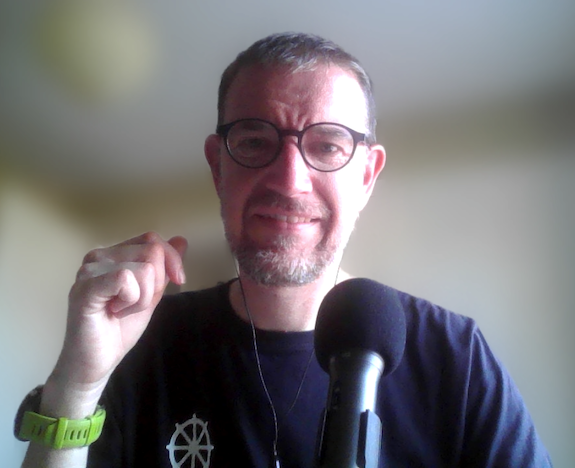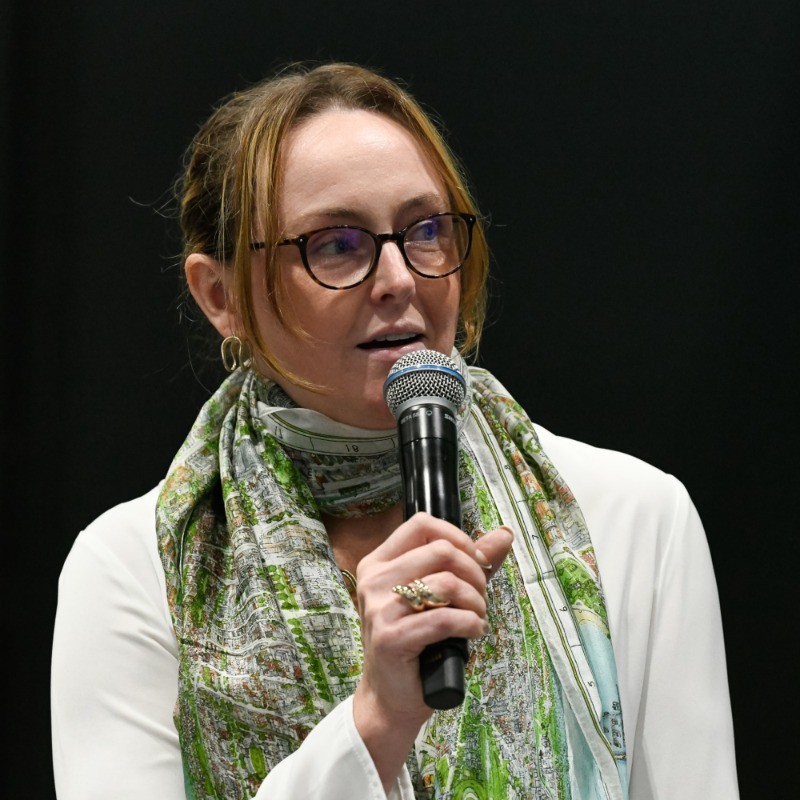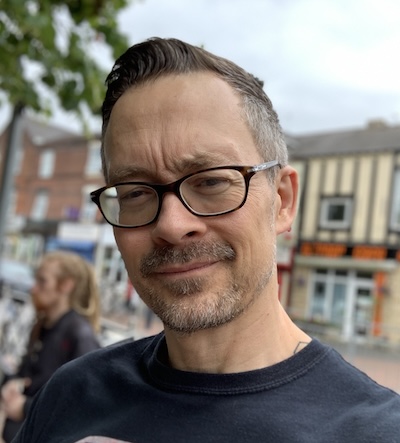Subscribe
Ed speaks with Joana Simoes, veteran of the Barcelona geo scene and organizer of Geomob Lisbon (#geomobLX)
Relevant links:
- Joana is on Twitter as @doublebyte
- Joana's website
About the podcast
On the Geomob podcast every week we discuss themes from the geo industry, interview Geomob speakers, and provide regular updates about our own projects.
Popular podcast topics:
The Geomob podcast is hosted by:
Autogenerated Transcript:
Ed 00:01 Welcome to the geomob podcast where we discussed you innovation in any and all forms it for fun or problem. Hi everyone. Welcome to episode four of the geomob podcast. Today I am delighted to have Shawana Somos as a guest to Wanda has been a speaker here at of Barcelona, which is where she lives and she's also the organizer of Geomob Lisbon, which is where she originally from. Welcome to the podcast Joana.
Joana 00:28 Hi ed. Thank you very much for the invitation and it's certainly a pleasure to be here.
Ed 00:33 You're quite unique in that you're a regular at GM of in Barcelona. I think you've attended every single event that we've had. And besides also being a speaker at one of the events, you're also an organizer of GMR, but you also have a lot of connections to London cause you did your PhD at UCL in the geography department there, which is where we've hosted many geomobs in London. And it's us, of course, a source of many of the geomob speakers that we have in London. And finally, you're also very active in the, uh, the FOSS4G community. And you were one of the organizers and phosphorG in Portugal a few years ago. So I think you bring a very relevant perspective. Tell us this, let's start with parcel and now that you've lived in Barcelona for a while, what's your impression of the GOC and in Barcelona,
Joana 01:11 what they observe in Barcelona is that there is a strong split between the locals and the and the foreigners. So it seems that the, in the geo scene, the locals are more working in a public institutions like a public organizations, while the foreigners tend to work more in startups or foreign company. And the phenomena that I observe is that there seems to be very little mixing between these two communities. I don't know if you,
Ed 01:42 yeah, it's um, as a foreigner who came to Barcelona about five years ago now, it, it's a challenge. It is a challenge to integrate with the local community. I don't, not because people are in any way unfriendly. Actually, the people are very friendly. First of all. There's usually a language barrier to degree, but also it's just people are very busy. You know, people are busy with their lives and have their community and their set of friends and so it can be, it can be a hurdle to overcome that. I find,
Joana 02:07 I think even in terms of events, there seemed to be like sort of parallel events, so some events that are more targets, more like the the local community and as you mentioned there is a language thing playing a role here and then there are other events that are more targeting, more like the foreign community, like startup grind, this sort of thing. And I think it's very welcome events like -inaudible- very, very welcome because I think they bring in a way they bring these two communities together, which is a bit unique.
Ed 02:38 Yeah. Well that's really one of the key focus points. So we've always had with geo Mav is that we want it to be a very broad mix of people from the public sector, be it startups, be it hobby projects, it'd be a, you know, big, big tech companies, whatever it is. Anyone who's doing something cool with geo. I also think so sometimes, actually I would love to have more speakers come from London where we have a very active community or or say from Germany and come and speak in Barcelona. And one question came up about that and people asked about, well you know, what languages do your ma Barcelona and, and so I think we just clarify for our listeners, the events are always in English, which in some ways actually makes things easier here in Barcelona because of course we have two languages here, Catalan and Spanish. And you know, it's not always this simple, the divide between the languages and, and I think that having an English, Hey, of course it opens it up to foreigners who live here, but also people who want to visit. But also it serves as a kind of a neutral base between the cut lawns and this finish. So w how long have you been in Barcelona?
Joana 03:36 Nine years now. Yeah. Okay. So it's quite a while.
Ed 03:41 Do you feel like a foreigner or I guess being Portuguese, the culture is not that different or
Joana 03:47 I would say I'm more in the foreign sites. Yeah, I feel more like a foreigner still. Yes. Okay. Even if like culturally I might be a bit closer because we share some common ground, but I think in terms of community I feel a little bit more in the that I integrate better in the foreign community rather than the local community. Yes. What about yourself
Ed 04:09 of work? Clearly I fall for that. What are some of the different geo roles that you've had here in Barcelona? What are, I know you've been not give in academia also in the open source side of things, but tell us about some of the different jobs you've had and some of the projects you've worked on.
Joana 04:25 I've worked for local companies but also for foreign companies and I worked as a data scientist, but mostly I've worked as a that engineer or software engineer, so I, I've experienced quite a few different roles here.
Ed 04:42 I guess when, when you presented at Barcelona, a couple, I guess that was last year, or you presented your own kind of hobby project, which was about finding local people to do find me a coin to present local people to do transactions with, but now you're working on a new project, it's called EarthPulse. What? Tell us a bit more about that. What is it? The
Joana 04:59 main product of earth poles is actually a program for digital transformation in that large companies and organizations. So, so the goal is to bring new technologies including but not limited to deep tech. So things like deep learning or cloud computing. But the idea is to foster innovation and also to improve, let's say the overall efficiency of the companies. And I think the unique thing about this program, it's that is it builds capacity from within. So sitting together with the people from this organization and working with them in their problems during the duration of the program. So maybe the geo component here is I think is important to stretch because myself and the co founder, we have a background in art observation or remote sensing, just facial analytics. So obviously we are targeting companies which are already using these sort of data or could benefit from using. Sometimes they are not using this type of data but they could benefit to use it.
Ed 06:04 Hmm. Are companies receptive to making this sort of transformational technical change or is it more companies want to stick to the tried and true?
Joana 06:13 Yeah, I mean there, there are some challenges. Mostly because large organizations they are very large, so maybe one part of the company or the people who are the, let's say the manager. The leaders may agree with these and may see that this is like important for the company, but then sometimes there is resistance from the people who are working daily with the technologies that they are, they'd be using for long and they don't always see that they would benefit from learning new things or using new things. So there is like, I think more than anything, there is a cultural mindset challenge here, which is very important to, to tackle.
Ed 06:49 I think that's always the case though with with technology in general, but particularly in geo, we've had so much innovation over the last couple of years, be it on the data that's available, be it on the technologies. I mean when we look at how rapidly, you know, the various open source technologies are developing, but you know, it seems like every week there are new things being announced, pay all kinds of different companies. It's hard to stay on top of, right. And so it's difficult to know like, okay, when should I, when should I jump and make a leap to a new technology? Or is that, you know, should I wait until it gets more stable or is it, you know, is it going to burn out? And, and in one year it'll be, you know, something no one remembers. It's always a challenge.
Joana 07:27 Yeah. I think it's a risk to do something like that because as you mentioned, I mean, it may be a cost. I mean if you adopt the technology that it's not yet mature, you may benefit from it. But also you may find there are bugs and they result in delays in your projects or wasting Marta money. So I think a high degree of risk in doing, in being an early adopter of technology.
Ed 07:50 Okay. Last year you also, after the first few geo moms here in Barcelona, I was, I was very happy cause you came to me and said you wanted to start hosting the event in Lisbon and you actually hosted one event last October and then the schedule is there. Our next event will be coming up in June. Tell us a bit about the GOC and in Portugal, how does it compare our safe with London, with Barcelona? How did the first event go? Give us, give us your impressions.
Joana 08:13 So th the your scene in general. I mean I've been involved mostly in the open source community, the phosphors Xiu community in Portugal for the last 10 years and I've seen it actually growing a lot and changing a lot. So it's a very positive outcome. In the beginning when I started, it was mostly people from public administrations and there were just a few people, you know, very small group. And now I see more and more people jumping into these that are a lot of startups related to the jail world obviously because these one is exploding now as a tech hub and a startup up. So this is also not a civil in the show scene. So, so there is a lot of interests and even in the frequency, uh, a number of events that are organized. I mean apart from geo Mav, there are other events from the free and open source community that is the sassy, there is yoga and I see these events attract more and more people and a more diverse crowd. And I think this is, this is very positive. And then I, I in my opinion, this trend will continue in the upcoming years as LEAs one is becoming more and more important in the technology scene.
Ed 09:25 Yeah, I know here in Barcelona, you know, the cities are in some ways kind of similar, right in that they're both kind of on the, on the water. And I mean in some ways people in Spain like to always compare Barcelona, Madrid. But I think in, in terms of the tech scene in many ways actually Lisbon is with the more is the rival of Barcelona. Right? I guess also in terms of attracting foreign or foreign companies that want to have a Southern European headquarters and things like that. So it's, it's fitting that we now have geomob in both cities so that we don't have to, the competition can carry on within GM office wall.
Joana 10:00 Yeah. I think a Lisbon is very attractive to the digital nomads like Barcelona because it is a mild climate. If there's cultural offer, it's kind of trendy CD. It's still as some, the prices are not as high as in Barcelona or Murray, which is positive. And I think both new digital nomads, intrepreneurs and also large corporations right now, they're very interested in loose one. And I certainly agree with you that it could be an alternative diverse learning in many cases.
Ed 10:33 Yeah. And so you mentioned you helped organize the foster, gee, there are a couple of years ago you said it was like two years ago, three years ago,
Joana 10:39 two years ago. Yes.
Ed 10:40 Now are many companies and public bodies switching to open source software and for their geo work or in Portugal? Or is this, is it just there's a hardcore community of people who like it or, or what's, what's driving the changes there?
Joana 10:53 Yes, there are many companies and, and public institutions. I wish there were more and I also wish that there were switching for the correct reasons. So I feel in Portugal, maybe in other countries is the same. A lot of people turn to, to open source as a free alternative to other types of software. So they, they see it mainly as a, an economical gain so they don't have to pay for these. Uh, but there's many other things in open source, which are interesting and attractive. And I think this is our role is a, always you, I'm, I'm part of the organization to actually tell people that there's more in officers, uh, apart from the price.
Ed 11:34 Well that's interesting because it's the same on the data side of things. So you know, at open kid, my geocoding service, a lot of people at the initial appeal is of course just the cost because you know, because we don't have to pay for the data, we're able to offer it economically at a, at a much better price point. But then once they're in the door, what very happens is people, you know, then at some point people will run in, they'll have a question or they'll find a problem or they'll say, Oh, this address isn't correct or whatever. And then at that point we start the dialogue with them and we say, well, you know, of course we can, we can fix that for you, but actually you can fix it yourself and it'll be much faster. And then with some of them, you actually do get kind of the aha moment where they're like, Holy shit, I can actually fix this. Right? I can participate and I can. Yeah. Obviously that doesn't happen with everyone, but we do get that with some customers. So you've seen that on the software side as well. Or,
Joana 12:23 yeah, totally, totally. I think it's a matter of people thinking that when things are free, they don't cost money. It doesn't mean that they cannot contribute in other ways. They are in fact, they should contribute in other ways. So one way is, as you said, the way the, with demos or with effort, this is a way of keeping the project alive because in the end, open source projects are projects and to survive they need contributions from people. So I think it's a matter of sustainability and I think it's probably the same with open cage. I mean, either you receive a financial contribution from your customers or you need to receive like a another sort of contribution, right?
Ed 13:03 Yes. Well we often, we have people who contribute kind of the software, the SDKs and things like that. And then those people, of course we, we give a significant discount to or find some other ways to collaborate with them. So join us as, as someone who's been been active in the industry for a while and you know, in different countries and things. What are some of the major trends that you see that kind of get you excited now via year in Barcelona? Be it in Portugal, via worldwide in general? What are, what are the things that in the geospace that you're excited about?
Joana 13:32 Yeah, I, I wanted to mention something as a person that's all is non real tech industry. I have served these sort of pattern that, uh, in the geo world things seems to come with a sort of a delay. So the, the most disruptive trends, the most cutting edge trends in the tech scene, they seem to arrive a bit later to, to the show worlds. And it's interesting to see things like, for instance, uh, cloud computing or machine learning, this, this kind of things. They start to appear in a, in phosphorG , which is the place where I, I go when I look for, for new trends, but they appear after they were already like widespread in the, in the tech world in general. To me, this is, uh, people in the jail world. They are sort of a little bit closed and they, they don't, there's, there's sort of a lack of communication between these two worlds. So I wish there were more people to bridge this gap between tech, general tech and geo-tech. I don't know if you share this.
Ed 14:32 I do know to a degree what you mean. I wonder if that's a function of the fact of, you know, people working in for local government or things like that is probably not the most, you know, it's more about delivering a high quality service than it is about being at the cutting edge and innovating. And I don't know, for me that's one of the things that I've really enjoyed about geomob in London is that on the one hand we do have all these people who come from the very formal GIS background and you know, these are the kinds of people who they're like, okay, this is the correct way to do it and we have to do it this way. And it's not about, you know, they bring a wealth of experience, but we also get the hobbyists and also the startups who, and this is something I'm excited about here in Barcelona, is it's not about getting startups who are building geo products.
Ed 15:18 It's more about getting startups who are using geo as a core part of their service. Cause I think that's where the innovation happens. People are like, Oh well I want to do this for my users or for my customers and let me just figure out a way to do it. And if I can do that using the traditional tools, fantastic. But if I can't, I need to find a different solution. And then I also think, I mean the other of course mega trend is that mobile, the mobile is still so new. It's only been one decade that everyone has a kind of a super computer in their pocket. And I think we're only now kind of waking up to what that means for the geo space in terms of always knowing where people are, where the assets are, how can we collect that data? How can we crowdsource that data? How can we combine that data with other data sets and do really cool things.
Joana 16:02 I totally agree with it. I mean, I think, uh, the GIS in general geospatial technologies, we're quite, we're, we're kind of a niche some years ago and sandal live because of the GPS devices, the portable GPS devices, they have like a huge role, like a main role in the, in the tech scene right now because most of the data that we have is actually jail located, right?
Ed 16:27 That's correct. I mean most of the elements all day now that's being collected by any tech company. It has a geo component. So you know that that opens up the doors to all kinds of experimentation.
Joana 16:36 Yeah, it's a very exciting time to be, to be working in a geospatial technologies. I think.
Ed 16:42 So. I guess before we wrap up, I did want to talk about one final thing we'd speaking about kind of creating the future. You actually are in a new role now where you're a CTO of a company that's doing code school, trying to help people who are kind of switching into technology, kind of a boot camp style set up where they, where they quickly learn and get up to speed on on programming. And tell us a little bit about that and why have you moved away from geo and do you see a model like this for the geo space or tell us a little bit about,
Joana 17:09 actually I don't see it as moving away from June, so I'm going through splay and why I've been effect teaching in the past years, the recent years because this is something that I enjoy very much and most of the time I was teaching topics that were some how related to just spatial analysis. So my initial contact with is a code school called -inaudible- was actually regarding the preparation of a boot camp in data analytics. And as part of the content of these a bootcamp, there was a model in a geospatial analytics. So these were something that I had in mind. In the meantime, I got more with the school because, uh, this is a, it's a project, uh, that I really like. I, I'm really interested in this project. So I ended up taking the role of CTO, but I'm certainly deeply committed to span the offer off the school in order to include what company data analytics. So it's already being prepared. And I think the first batch will start in March. And there is a model in geospatial analytics and I think this is very interesting because this is not something that I see in the competitors. So many boot camps are focused in a front end and backend technologists, sometimes they're focused in some cases they offer something in data analytics, but I don't see many of them using just facial analytics. And I think in, from my experience in industry, this is a field in high demand.
Ed 18:40 Yeah. Yes, I agree. I mean the amount of data that's being produced is not, is only growing. So do you think there's more and more need for people to help, you know, manage all the data, analyze the data, draw insights from the data. And of course, as we, as we said just a minute ago, you know, the vast majority of data now has a spatial component. So that's obviously a key way to do the analysis center to try to get value, right.
Joana 19:02 I mean regardless, regardless, you are working in a IOT, so with the devices or if you are working with session networks, I mean all these, these data as a, some some sort of location facts. So I think it's very, very relevant to be able to use this data to ingest it and to process it in order to extract insights.
Ed 19:26 I agree. Well that's great. Maybe, um, maybe, hopefully at some point in the future at a GMR persona, you can come give us an update on this project, on, you know, teaching a geo code school, you know, what, what the insights are that you've had and what are the skills that people are gaining and benefiting from. And I look forward to that talk.
Joana 19:44 I would love to do that. Yes.
Ed 19:46 All right, well we're about out of time today as you it, but as we wrap up, maybe you can share how can people get in touch with you if they want to learn more about your projects?
Joana 19:54 Sure. My Twitter handle is doublebyte, so double B, Y, T E and uh, my, my website is doublebyte dot net you can -inaudible-.
Ed 20:07 Perfect. We'll make sure of course that does get into the show notes as well. All right, well thanks very much Joana. I look forward to seeing you at the next geomob Barcelona and geomob Lisbon.
Joana 20:18 Thank you. Thank you.
Ed 20:21 Thanks everyone for joining us today and listening to the geomob podcast. Hopefully you've enjoyed the discussion. Please don't hesitate if you have any feedback for us or any suggestions for topics that we should cover in the future. You can get the show notes over on the website, which is at thegeomob.com why are there, if you're not yet on the mailing list, please do get on the mailing list where we once a month send out an email announcing future events, summarizing past events and just generally sharing events that you may find of interest. You can also of course follow us on Twitter where our handle is geomob. You can follow Steven at Stephen Veltman. You can follow me fry Fogel, you can check out -inaudible- dot org and of course if you need any geocoding, please check out my service, which is open cage data.com we look forward to you joining us again at a future episode or end of course seeing you at a future geomob event. Hope to see you there soon. Bye.
